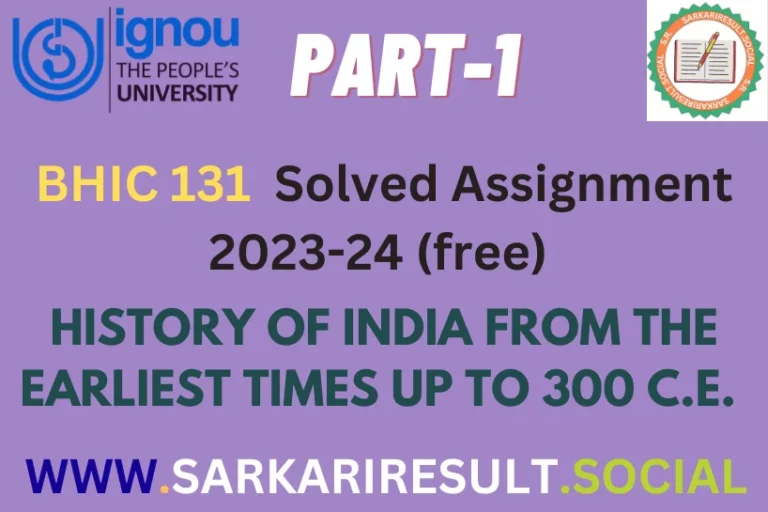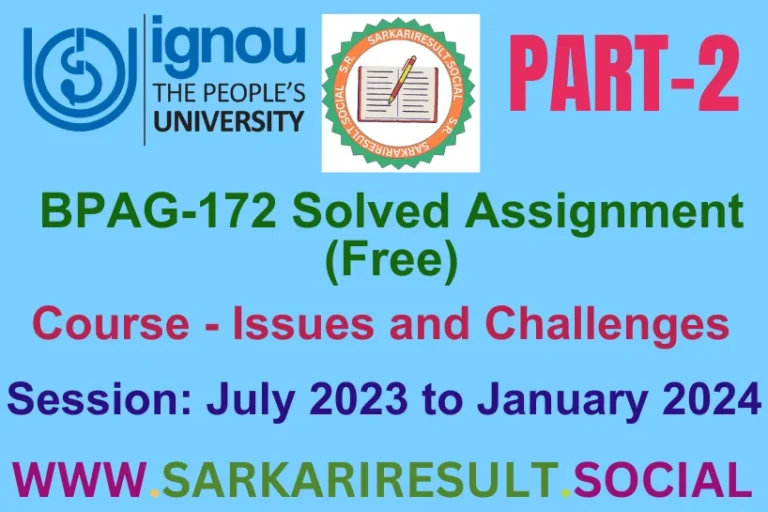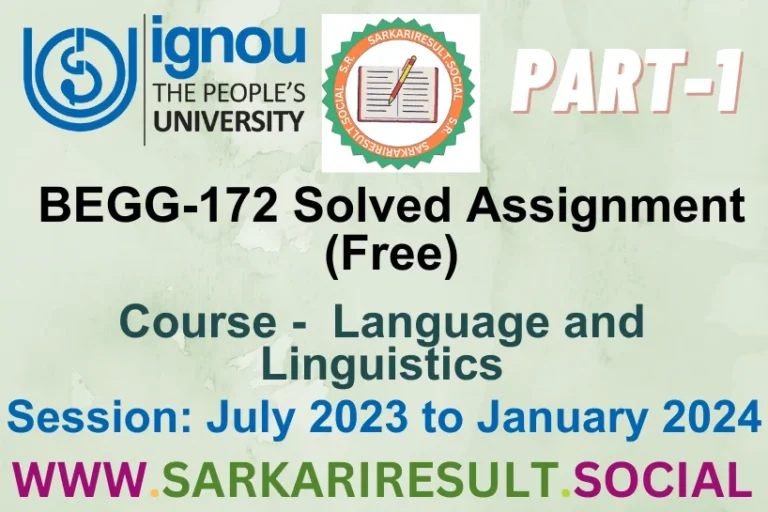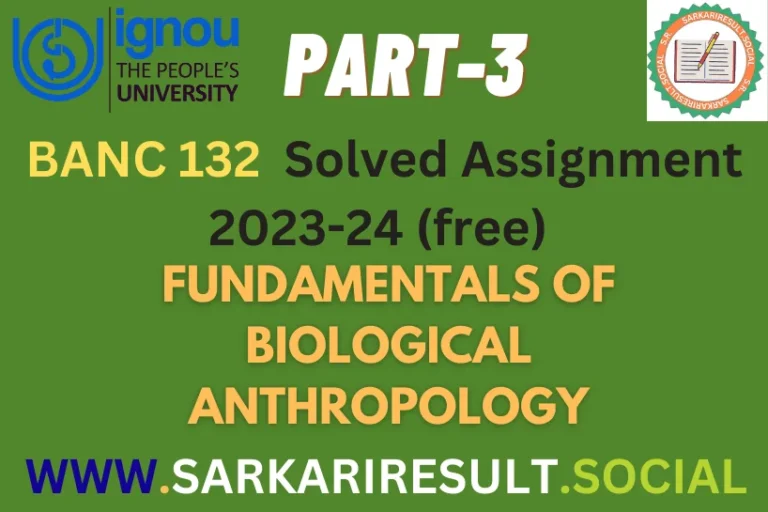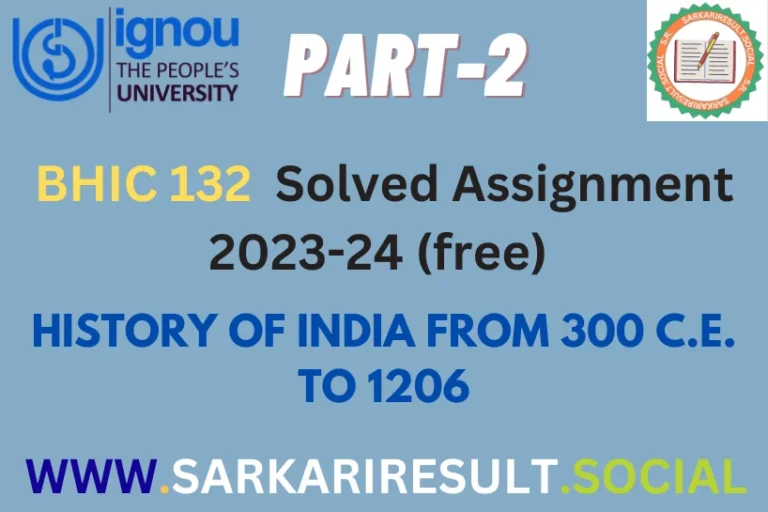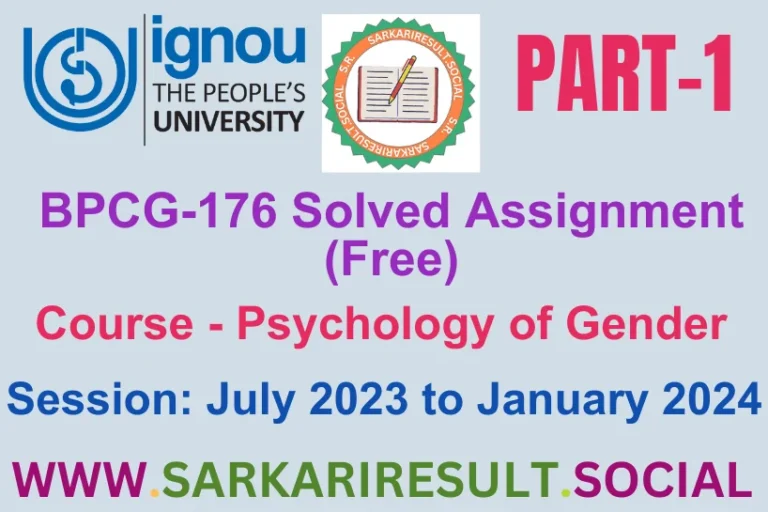BPSC 134 SOLVED IGNOU ASSIGNMENT FREE PART 1
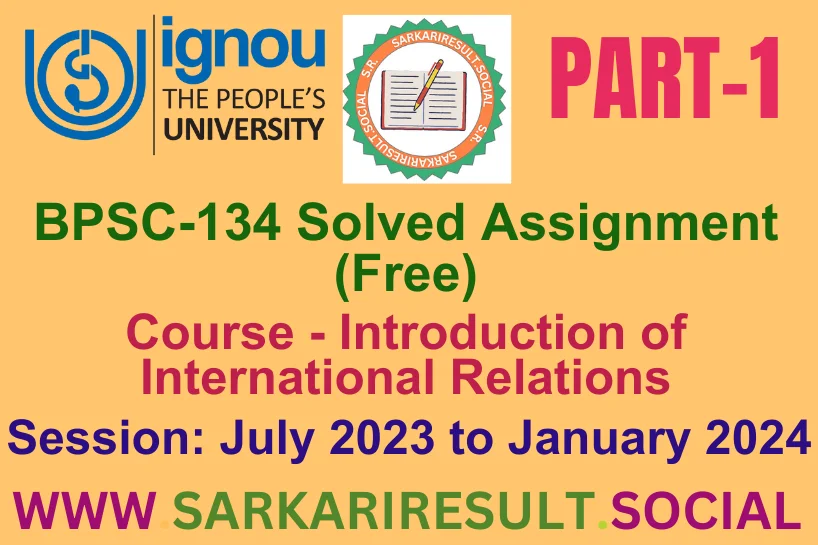
Welcome to the BPSC 134 SOLVED IGNOU ASSIGNMENT FREE PART 1 TMA. Assignment – I features two comprehensive questions. In about 500 words each, critically examine the role of international organizations and multilateralism in world politics. Additionally, explain the basic tenets of Feminism in international relations. Our concise responses provide a clear and efficient path for comprehending these critical aspects of international relations, ensuring a successful completion of your assignments.

Answer the following in about 500 words each.
Q.1 Critically examine the role of international organisations and multilateralism in world politics.
Ans. International organizations (IOs) and multilateralism play pivotal roles in shaping world politics, fostering cooperation, and addressing global challenges. However, their effectiveness is subject to critique and contingent on various factors.
Roles and Contributions:
1. Conflict Resolution:
– IOs provide platforms for diplomatic dialogue and conflict resolution, mitigating tensions between nations. For example, the United Nations (UN) facilitates peacekeeping missions and diplomatic initiatives.
2. Economic Cooperation:
– Institutions like the International Monetary Fund (IMF) and World Bank promote economic stability and development through financial assistance and policy coordination.
3. Humanitarian Aid:
– IOs respond to crises by providing humanitarian aid. Organizations like the Red Cross and UN agencies address issues such as famine, refugees, and natural disasters.
4. Global Governance:
– Multilateralism fosters global governance by encouraging nations to collaborate on issues like climate change, arms control, and human rights. Treaties and agreements negotiated through IOs establish norms and standards.
5. Health Pandemics:
– Organizations like the World Health Organization (WHO) play crucial roles in coordinating responses to health crises, as seen in efforts to combat pandemics like HIV/AIDS and COVID-19.
6. Development Assistance:
– IOs assist in addressing global inequalities by providing development assistance. Programs initiated by IOs aim to reduce poverty, enhance education, and improve healthcare.
Critiques and Challenges:
1. Power Imbalances:
– Criticisms arise from power imbalances within IOs. Major powers may dominate decision-making, leading to unequal representation and the imposition of interests.
2. Inefficiency and Bureaucracy:
– Some argue that IOs can be slow, bureaucratic, and inefficient. Decision-making processes may be hampered by excessive red tape, hindering timely responses to global issues.
3. Sovereignty Concerns:
– Sovereignty concerns arise as nations may be hesitant to cede authority to supranational organizations. This can limit the effectiveness of IOs in addressing certain issues.
4. Selective Enforcement:
– IOs may be accused of selective enforcement and bias, particularly in matters of international law. Powerful nations may escape accountability for violations, undermining the credibility of the system.
5. Dependency Issues:
– Developing nations might experience dependency on IOs, with conditions attached to aid potentially influencing domestic policies and perpetuating economic disparities.
6. Security Challenges:
– Addressing security challenges, such as terrorism and cyber threats, proves challenging for IOs, as responses often require the cooperation of member states with diverse interests.
Conclusion:
In conclusion, international organizations and multilateralism are integral to addressing global challenges. Despite their imperfections, they serve as essential platforms for cooperation, conflict resolution, and the pursuit of common goals. Addressing the critiques involves enhancing transparency, inclusivity, and addressing power imbalances. Striking a balance between respecting national sovereignty and embracing global cooperation remains a central challenge for the effectiveness of international organizations in the complex landscape of world politics.
Q.2 Explain the basic tenets of Feminism in international relations.
Ans. Feminism in international relations (IR) challenges traditional perspectives by emphasizing gender as a crucial factor in understanding global politics. The basic tenets of feminist IR theory encompass a range of ideas that critique and seek to transform established norms and practices.
1. Gender as a Social Construct:
– Feminism posits that gender is not biologically determined but socially constructed. It highlights how societal expectations and norms shape distinct roles, behaviors, and power dynamics assigned to men and women.
2. Patriarchy and Power Structures:
– Feminist IR identifies patriarchy, a system that privileges men, as a key driver of global power structures. It explores how patriarchy intersects with other forms of oppression like race and class, creating complex power dynamics.
3. Critique of Traditional IR Theories:
– Feminism critiques traditional IR theories for their androcentric (male-centered) biases. Realism, liberalism, and constructivism are examined through a feminist lens, exposing gender-blind assumptions.
4. Global Inequalities:
– Feminism analyzes how global inequalities are gendered. It highlights how economic, political, and social systems perpetuate disparities, affecting women disproportionately and intersecting with issues of race, class, and sexuality.
5. War and Conflict:
– Feminist perspectives challenge the gendered nature of war and conflict. They examine how women are affected by armed conflicts and how militarism perpetuates toxic masculinity. Feminists call for the inclusion of women in conflict resolution and peacebuilding efforts.
6. Global Governance and Institutions:
– Feminism critiques global governance structures and institutions for their gender biases. International organizations are scrutinized for reinforcing patriarchal norms and excluding women from decision-making processes.
7. Sexual Violence and Human Rights:
– Feminist IR highlights the prevalence of sexual violence in conflict zones and advocates for recognizing sexual violence as a human rights violation. It emphasizes the need for legal frameworks that address and prevent gender-based violence.
8. Transnational Feminism:
– Transnational feminism explores the interconnectedness of women’s struggles globally. It emphasizes solidarity across borders, recognizing the diversity of women’s experiences and advocating for a collective approach to address global challenges.
9. Peace and Security:
– Feminist IR challenges traditional notions of security, broadening the definition to include human security. It critiques militarized approaches and argues for addressing root causes of conflict, including gender-based discrimination.
10. Agency and Empowerment:
– Feminism emphasizes women’s agency and contributions to global politics. It calls for recognizing and amplifying women’s voices, challenging the perception of women as passive victims, and highlighting their role in shaping international relations.
Conclusion:
Feminism in international relations offers a transformative lens through which to analyze and reshape global politics. By centering gender as a fundamental category of analysis, feminist perspectives contribute to a more nuanced understanding of power, inequality, and agency in international affairs. As the field evolves, feminist IR continues to push for inclusivity, intersectionality, and the dismantling of patriarchal structures to create a more equitable and just global order.
Also See This: BPSC 134 SOLVED IGNOU ASSIGNMENT FREE PART 2

